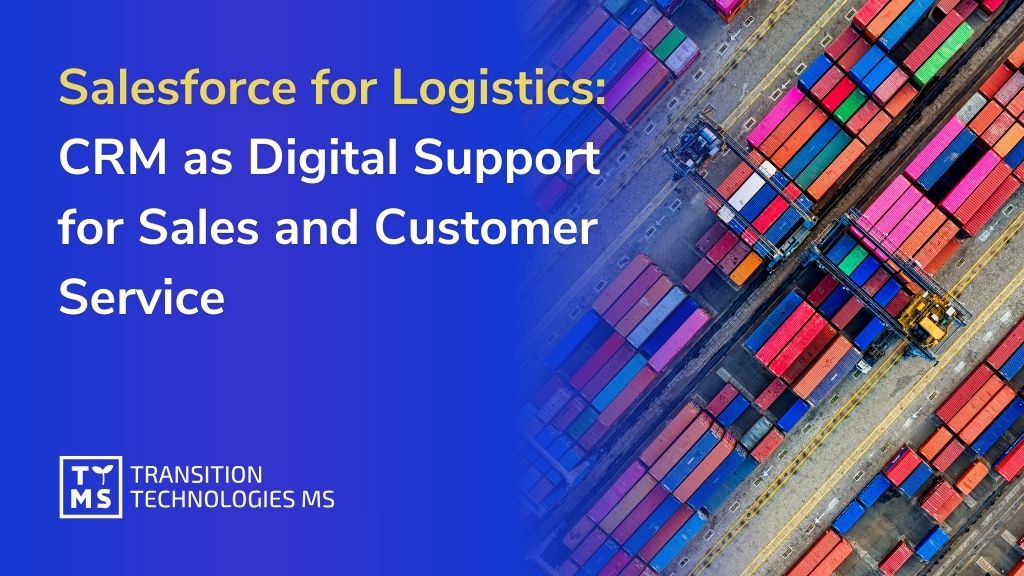1. Introduction: From Hype to Hard Truths
For the past three years, artificial intelligence adoption in business has been driven by whirlwind hype and experimentation. Companies poured billions into generative AI pilots, eager to transform “literally everything” with AI. 2025, in particular, was the peak of this AI gold rush, as many firms moved from experiments to real deployments. Yet the reality lagged behind the promises – AI’s true impact remained uneven and hard to quantify, often because the surrounding systems and processes weren’t ready to support lasting results. As the World Economic Forum aptly noted, “If 2025 has been the year of AI hype, 2026 might be the year of AI reckoning”. In 2026, the bill for those early AI experiments is coming due in the form of technical debt, security risks, regulatory scrutiny, and investor impatience.
2026 represents a pivotal shift: the era of unchecked AI evangelism is giving way to an era of AI evaluation and accountability. The question businesses must answer now isn’t “Can AI do this?” but rather “How well can it do it, at what cost, and who bears the risk?”. This article examines how the freewheeling AI experiments of 2023-2025 created hidden costs and risks, and why 2026 is shaping up to be the year of truth for AI in business – a year when hype meets reality, and someone has to pay the price.
2. 2023-2025: A Hype-Driven AI Experimentation Era
In hindsight, the years 2023 through 2025 were an AI wild west for many organizations. Generative AI (GenAI) tools like ChatGPT, Copilots, and custom models burst onto the scene, promising to revolutionize coding, content creation, customer service, and more. Tech giants and startups alike invested unprecedented sums in AI development and infrastructure, fueling a frenzy of innovation. Across nearly every industry, AI was touted as a transformative force, and companies raced to pilot new AI use cases to avoid being left behind.
However, this rush came with a stark contradiction. Massive models and big budgets grabbed headlines, but the “lived reality” for businesses often fell short of the lofty promises. By late 2025, many organizations struggled to point to concrete improvements from their AI initiatives. The problem wasn’t that AI technology failed – in many cases, the algorithms worked as intended. Rather, the surrounding business processes and support systems were not prepared to turn AI outputs into durable value. Companies lacked the data infrastructure, change management, and integration needed to realize AI’s benefits at scale, so early pilots rarely matured into sustained ROI.
Enthusiasm for AI nonetheless remained sky-high. Early missteps and patchy results did little to dampen the “AI race” mentality. If anything, failures shifted the conversation toward making AI work better. As one analysis put it, “Those moments of failure did not diminish enthusiasm – they matured initial excitement into a stronger desire for [results]”. By 2025, AI had moved decisively from sandbox to real-world deployment, and executives entered 2026 still convinced that AI is an imperative – but now wiser about the challenges ahead.
3. The Mounting Technical & Security Debt from Rapid AI Adoption
One of the hidden costs of the 2023-2025 AI rush is the significant technical debt and security debt that many organizations accumulated. In the scramble to deploy AI solutions quickly, shortcuts were taken – especially in areas like AI-generated code and automated workflows – that introduced long-term maintenance burdens and vulnerabilities.
AI coding assistants dramatically accelerated software development, enabling developers to churn out code up to 2× faster. But this velocity came at a price. Studies found that AI-generated code often favors quick fixes over sound architecture, leading to bugs, security vulnerabilities, duplicated code, and unmanageable complexity piling up in codebases. As one report noted, “the immense velocity gain inherently increases the accumulation of code quality liabilities, specifically bugs, security vulnerabilities, structural complexity, and technical debt”. Even as AI coding tools improve, the sheer volume of output overwhelms human code review processes, meaning bad code slips through. The result: a growing backlog of “structurally weak” code and latent defects that organizations must now pay to refactor and secure.
Forrester researchers predict that by 2026, 75% of technology decision-makers will be grappling with moderate to severe technical debt, much of it due to the speed-first, AI-assisted development approach of the preceding years. This technical debt isn’t just a developer headache – it’s an enterprise risk. Systems riddled with AI-introduced bugs or poorly maintained AI models can fail in unpredictable ways, impacting business operations and customer experiences.
Security leaders are likewise sounding alarms about “security debt” from rapid GenAI adoption. In the rush to automate tasks and generate code/content with AI, many companies failed to implement proper security guardrails. Common issues include:
Unvetted AI-generated code with hidden vulnerabilities (e.g. insecure APIs or logic flaws) being deployed into production systems. Attackers can exploit these weaknesses if not caught.
“Shadow AI” usage by employees – workers using personal ChatGPT or other AI accounts to process company data – leading to sensitive data leaks. For example, in 2023, Samsung engineers accidentally leaked confidential source code to ChatGPT, prompting the company to ban internal use of generative AI until controls were in place. Samsung’s internal survey found 65% of participants saw GenAI tools as a security risk, citing the inability to retrieve data once it’s on external AI servers. Many firms have since discovered employees pasting client data or source code into AI tools without authorization, creating compliance and IP exposure issues.
New attack vectors via AI integrations. As companies wove AI into products and workflows, they sometimes created fresh vulnerabilities. Threat actors are now leveraging generative AI to craft more sophisticated cyberattacks at machine speed, from convincing phishing emails to code exploits. Meanwhile, AI services integrated into apps could be manipulated (via prompt injection or data poisoning) unless properly secured.
The net effect is that security teams enter 2026 with a backlog of AI-related risks to mitigate. Regulators, customers, and auditors are increasingly expecting “provable security controls across the AI lifecycle (data sourcing, training, deployment, monitoring, and incident response)”. In other words, companies must now pay down the security debt from their rapid AI uptake by implementing stricter access controls, data protection measures, and AI model security testing. Even cyber insurance carriers are reacting – some insurers now require evidence of AI risk management (like adversarial red-teaming of AI models and bias testing) before providing coverage.
Bottom line: The experimentation era accelerated productivity but also spawned hidden costs. In 2026, businesses will have to invest time and money to clean up “AI slop” – refactoring shaky AI-generated code, patching vulnerabilities, and instituting controls to prevent data leaks and abuse. Those that don’t tackle this technical and security debt will pay in other ways, whether through breaches, outages, or stymied innovation.
4. The Governance Gap: AI Oversight Didn’t Keep Up
Another major lesson from the 2023-2025 AI boom is that AI adoption raced ahead of governance. In the frenzy to deploy AI solutions, many organizations neglected to establish proper AI governance, audit trails, and internal controls. Now, in 2026, that oversight gap is becoming painfully clear.
During the hype phase, exciting AI tools were often rolled out with minimal policy guidance or risk assessment. Few companies had frameworks in place to answer critical questions like: Who is responsible for AI decision outcomes? How do we audit what the AI did? Are we preventing bias, IP misuse, or compliance violations by our AI systems? The result is that many firms operated on AI “trust” without “verify.” For instance, employees were given AI copilots to generate code or content, but organizations lacked audit logs or documentation of what the AI produced and whether humans reviewed it. Decision-making algorithms were deployed without clear accountability or human-in-the-loop checkpoints.
In a PwC survey, nearly half of executives admitted that putting Responsible AI principles into practice has been a challenge. While a strong majority agree that “responsible AI” is crucial for ROI and efficiency, operationalizing those principles (through bias testing, transparency, control mechanisms) lagged behind. In fact, AI adoption has spread faster than the governance models to manage its unique risks. Companies eagerly implemented AI agents and automated decision systems, “spreading faster than governance models can address their unique needs”. This governance gap means many organizations entered 2026 with AI systems running in production that have no rigorous oversight or documentation, creating risk of errors or ethical lapses.
The early rush to AI often prioritized speed over strategy, as one tech legal officer observed. “The early rush to adopt AI prioritized speed over strategy, leaving many organizations with little to show for their investments,” says Ivanti’s Chief Legal Officer, noting that companies are now waking up to the consequences of this lapse. Those consequences include fragmented, siloed AI projects, inconsistent standards, and “innovation theater” – lots of AI pilot activity with no cohesive strategy or measurable value to the business.
Crucially, lack of governance has become a board-level issue by 2026. Corporate directors and investors are asking management: What controls do you have over your AI? Regulators, too, expect to see formal AI risk management and oversight structures. In the U.S., the SEC’s Investor Advisory Committee has even called for enhanced disclosures on how boards oversee AI governance as part of managing cybersecurity risks. This means companies could soon have to report how they govern AI use, similar to how they disclose financial controls or data security practices.
The governance gap of the last few years has left many firms playing catch-up. Audit and compliance teams in 2026 are now scrambling to inventory all AI systems in use, set up AI audit trails, and enforce policies (e.g. requiring human review of AI outputs in high-stakes decisions). Responsible AI frameworks that were mostly talk in 2023-24 are (hopefully) becoming operational in 2026. As PwC predicts, “2026 could be the year when companies overcome this challenge and roll out repeatable, rigorous RAI (Responsible AI) practices”. We are likely to see new governance mechanisms take hold: from AI model registers and documentation requirements, to internal AI ethics committees, to tools for automated bias detection and monitoring. The companies that close this governance gap will not only avoid costly missteps but also be better positioned to scale AI in a safe, trusted manner going forward.
5. Speed vs. Readiness: The Deployment-Readiness Gap Widens
One striking issue in the AI boom was the widening gap between how fast companies deployed AI and how prepared their organizations were to manage its consequences. Many businesses leapt from zero to AI at breakneck speed, but their people, processes, and strategies lagged behind, creating a performance paradox: AI was everywhere, yet tangible business value was often elusive.
By the end of 2025, surveys revealed a sobering statistic – up to 95% of enterprise generative AI projects had failed to deliver measurable ROI or P&L impact. In other words, only a small fraction of AI initiatives actually moved the needle for the business. The MIT Media Lab found that “95% of organizations see no measurable returns” from AI in the knowledge sector. This doesn’t mean AI can’t create value; rather, it underscores that most companies weren’t ready to capture value at the pace they deployed AI.
The reasons for this deployment-readiness gap are multi-fold:
Lack of integration with workflows: Deploying an AI model is one thing; redesigning business processes to exploit that model is another. Many firms “introduced AI without aligning it to legacy processes or training staff,” leading to an initial productivity dip known as the AI productivity paradox. AI outputs appeared impressive in demos, but front-line employees often couldn’t easily incorporate them into daily work, or had to spend extra effort verifying AI results (what some call “AI slop” or low-quality output that creates more work).
Skills and culture lag: Companies deployed AI faster than they upskilled their workforce to use and oversee these tools. Employees were either fearful of the new tech or not trained to collaborate with AI systems effectively. As Gartner analyst Deepak Seth noted, “we still don’t understand how to build the team structure where AI is an equal member of the team”. Many organizations lacked AI fluency among staff and managers, resulting in misuse or underutilization of the technology.
Scattered, unprioritized efforts: Without a clear AI strategy, some companies spread themselves thin over dozens of AI experiments. “Organizations spread their efforts thin, placing small sporadic bets… early wins can mask deeper challenges,” PwC observes. With AI projects popping up everywhere (often bottom-up from enthusiastic employees), leadership struggled to scale the ones that mattered. The absence of a top-down strategy meant many AI projects never translated into enterprise-wide impact.
The result of these factors was that by 2025, many businesses had little to show for their flurry of AI activity. As Ivanti’s Brooke Johnson put it, companies found themselves with “underperforming tools, fragmented systems, and wasted budgets” because they moved so fast without a plan. This frustration is now forcing a change in 2026: a shift from “move fast and break things” to “slow down and get it right.”
Already, we see leading firms adjusting their approach. Rather than chasing dozens of AI use cases, they are identifying a few high-impact areas and focusing deeply (the “go narrow and deep” approach). They are investing in change management and training so that employees actually adopt the AI tools provided. Importantly, executives are injecting more discipline and oversight into AI initiatives. “There is – rightfully – little patience for ‘exploratory’ AI investments” in 2026, notes PwC; every dollar now needs to “fuel measurable outcomes”, and frivolous pilots are being pruned. In other words, AI has to earn its keep now.
The gap between deployment and readiness is closing at companies that treat AI as a strategic transformation (led by senior leadership) rather than a series of tech demos. Those still stuck in “innovation theater” will find 2026 a harsh wake-up call – their AI projects will face scrutiny from CFOs and boards asking “What value is this delivering?” Success in 2026 will favor the organizations that balance innovation with preparation, aligning AI projects to business goals, fortifying them with the right processes and talent, and phasing deployments at a pace the organization can absorb. The days of deploying AI for AI’s sake are over; now it’s about sustainable, managed AI that the organization is ready to leverage.
6. Regulatory Reckoning: AI Rules and Enforcement Arrive
Regulators have taken notice of the AI free-for-all of recent years, and 2026 marks the start of a more forceful regulatory response worldwide. After a period of policy debate in 2023-2024, governments are now moving from guidelines to enforcement of AI rules. Businesses that ignored AI governance may find themselves facing legal and financial consequences if they don’t adapt quickly.
In the European Union, a landmark law – the EU AI Act – is coming into effect in phases. Adopted in late 2023, this comprehensive regulation imposes requirements based on AI risk levels. Notably, by August 2, 2026, companies deploying AI in the EU must comply with specific transparency rules and controls for “high-risk AI systems.” Non-compliance isn’t an option unless you fancy huge fines – penalties can go up to €35 million or 7% of global annual turnover (whichever is higher) for serious violations. This is a clear signal that the era of voluntary self-regulation is over in the EU. Companies will need to document their AI systems, conduct risk assessments, and ensure human oversight for high-risk applications (e.g. AI in healthcare, finance, HR, etc.), or face hefty enforcement.
EU regulators have already begun flexing their muscles. The first set of AI Act provisions kicked in during 2025, and regulators in member states are being appointed to oversee compliance. The European Commission is issuing guidance on how to apply these rules in practice. We also see related moves like Italy’s AI law (aligned with the EU Act) and a new Code of Practice on AI-generated content transparency being rolled out. All of this means that by 2026, companies operating in Europe need to have their AI house in order – keeping audit trails, registering certain AI systems in an EU database, providing user disclosures for AI-generated content, and more – or risk investigations and fines.
North America is not far behind. While the U.S. hasn’t passed a sweeping federal AI law as of early 2026, state-level regulations and enforcements are picking up speed. For example, Colorado’s AI Act (enacted 2024) takes effect in June 2026, imposing requirements on AI developers and users to avoid algorithmic discrimination, implement risk management programs, and conduct impact assessments for AI involved in important decisions. Several other states (California, New York, Illinois, etc.) have introduced AI laws targeting specific concerns like hiring algorithms or AI outputs that impersonate humans. This patchwork of state rules means companies in the U.S. must navigate compliance carefully or face state attorney general actions.
Indeed, 2025 already saw the first signs of AI enforcement in the U.S.: In May 2025, the Pennsylvania Attorney General reached a settlement with a property management company after its use of an AI rental decision tool led to unsafe housing conditions and legal violations. In July 2025, the Massachusetts AG fined a student loan company $2.5 million over allegations that its AI-powered system unfairly delayed or mismanaged student loan relief. These cases are likely the tip of the iceberg – regulators are signaling that companies will be held accountable for harmful outcomes of AI, even using existing consumer protection or anti-discrimination laws. The U.S. Federal Trade Commission has also warned it will crack down on deceptive AI practices and data misuse, launching inquiries into chatbot harms and children’s safety in AI apps.
Across the Atlantic, the UK is shifting from principles to binding rules as well. After initially favoring a light-touch, pro-innovation stance, the UK government indicated in 2025 that sector regulators will be given explicit powers to enforce AI requirements in areas like data protection, competition, and safety. By 2026, we can expect the UK to introduce more concrete compliance obligations (though likely less prescriptive than the EU’s approach).
For business leaders, the message is clear: the regulatory landscape for AI is rapidly solidifying in 2026. Companies need to treat AI compliance with the same seriousness as data privacy (GDPR) or financial reporting. This includes: conducting AI impact assessments, ensuring transparency (e.g. informing users when AI is used), maintaining documentation and audit logs of AI system decisions, and implementing processes to handle AI-related incidents or errors. Those who fail to do so may find regulators making an example of them – and the fines or legal damages will effectively “make them pay” for the lax practices of the past few years.
7. Investor Backlash: Demanding ROI and Accountability
It’s not just regulators – investors and shareholders have also lost patience with AI hype. By 2026, the stock market and venture capitalists alike are looking for tangible returns on AI investments, and they are starting to punish companies that over-promised and under-delivered on AI.
In 2025, AI was the belle of the ball on Wall Street – AI-heavy tech stocks soared, and nearly every earnings call featured some AI angle. But as 2026 kicks off, analysts are openly asking AI players to “show us the money.” A report summarized the mood with a dating analogy: “In 2025, AI took investors on a really nice first date. In 2026… it’s time to start footing the bill.”. The grace period for speculative AI spending is ending, and investors expect to see clear ROI or cost savings attributable to AI initiatives. Companies that can’t quantify value may see their valuations marked down.
We are already seeing the market sorting AI winners from losers. Tom Essaye of Sevens Report noted in late 2025 that the once “unified enthusiasm” for all things AI had become “fractured”, with investors getting choosier. “The industry is moving into a period where the market is aggressively sorting winners and losers,” he observed. For example, certain chipmakers and cloud providers that directly benefit from AI workloads boomed, while some former software darlings that merely marketed themselves as AI leaders have seen their stocks stumble as investors demand evidence of real AI-driven growth. Even big enterprise software firms like Oracle, which rode the AI buzz, faced more scrutiny as investors asked for immediate ROI from AI efforts. This is a stark change from 2023, when a mere mention of “AI strategy” could boost a company’s stock price. Now, companies must back up the AI story with numbers – whether it’s increased revenue, improved margins, or new customers attributable to AI.
Shareholders are also pushing companies on the cost side of AI. Training large AI models and running them at scale is extremely expensive (think skyrocketing cloud bills and GPU purchases). In 2026’s tighter economic climate, boards and investors won’t tolerate open-ended AI spending without a clear business case. We may see some investor activism or tough questioning in annual meetings: e.g., “You spent $100M on AI last year – what did we get for it?” If the answer is ambiguous, expect backlash. Conversely, firms that can articulate and deliver a solid AI payoff will be rewarded with investor confidence.
Another aspect of investor scrutiny is corporate governance around AI (as touched on earlier). Sophisticated investors worry that companies without proper AI governance may face reputational or legal disasters (which hurt shareholder value). This is why the SEC and investors are calling for board-level oversight of AI. It won’t be surprising if in 2026 some institutional investors start asking companies to conduct third-party audits of their AI systems or to publish AI risk reports, similar to sustainability or ESG reports. Investor sentiment is basically saying: we believe AI can be transformative, but we’ve been through hype cycles before – we want to see prudent management and real returns, not just techno-optimism.
In summary, 2026 is the year AI hype meets financial reality. Companies will either begin to reap returns on their AI investments or face tough consequences. Those that treated the past few years as an expensive learning experience must now either capitalize on that learning or potentially write off failed projects. For some, this reckoning could mean stock price corrections or difficulty raising funds if they can’t demonstrate a path to profitability with AI. For others who have sound AI strategies, 2026 could be the year AI finally boosts the bottom line and vindicates their investments. As one LinkedIn commentator quipped, “2026 won’t be defined by hype. It will be defined by accountability – especially by cost and return on investment.”
8. Case Studies: AI Maturity Winners and Losers
Real-world examples illustrate how companies are faring as the experimental AI tide goes out. Some organizations are emerging as AI maturity winners – they invested in governance and alignment early, and are now seeing tangible benefits. Others are struggling or learning hard lessons, having to backtrack on rushed AI deployments that didn’t pan out.
On the struggling side, a cautionary tale comes from those who sprinted into AI without guardrails. The Samsung incident mentioned earlier is a prime example. Eager to boost developer productivity, Samsung’s semiconductor division allowed engineers to use ChatGPT – and within weeks, internal source code and sensitive business plans were inadvertently leaked to the public chatbot. The fallout was swift: Samsung imposed an immediate ban on external AI tools until it could implement proper data security measures. This underscores that even tech-savvy companies can trip up without internal AI policies. Many other firms in 2023-24 faced similar scares (banks like JPMorgan temporarily banned ChatGPT use, for instance), realizing only after a leak or an embarrassing output that they needed to enforce AI usage guidelines and logging. The cost here is mostly reputational and operational – these companies had to pause promising AI applications until they cleaned up procedures, costing them time and momentum.
Another “loser” scenario is the media and content companies that embraced AI too quickly. In early 2023, several digital publishers (BuzzFeed, CNET, etc.) experimented with AI-written articles to cut costs. It backfired when readers and experts found factual errors and plagiarism in the AI content, leading to public backlash and corrections. CNET, for example, quietly had to halt its AI content program after significant mistakes were exposed, undermining trust. These cases highlight that rushing AI into customer-facing outputs without rigorous review can damage a brand and erode customer trust – a hard lesson learned.
On the flip side, some companies have navigated the AI boom adeptly and are now reaping rewards:
Ernst & Young (EY), the global consulting and tax firm, is a showcase of AI at scale with governance. EY early on created an “AI Center of Excellence” and established policies for responsible AI use. The result? By 2025, EY had 30 million AI-enabled processes documented internally and 41,000 AI “agents” in production supporting their workflows. One notable agent, EY’s AI-driven tax advisor, provides up-to-date tax law information to employees and clients – an invaluable tool in a field with 100+ regulatory changes per day. Because EY paired AI deployment with training (upskilling thousands of staff) and controls (every AI recommendation in tax gets human sign-off), they have seen efficiency gains without losing quality. EY’s leadership claims these AI tools have significantly boosted productivity in back-office processing and knowledge management, giving them a competitive edge. This success wasn’t accidental; it came from treating AI as a strategic priority and investing in enterprise-wide readiness.
DXC Technology, an IT services company, offers another success story through a human-centric AI approach. DXC integrated AI as a “co-pilot” for its cybersecurity analysts. They deployed an AI agent as a junior analyst in their Security Operations Center to handle routine tier-1 tasks (like classifying incoming alerts and documenting findings). The outcome has been impressive: DXC cut investigation times by 67.5% and freed up 224,000 analyst hours in a year. Human analysts now spend those hours on higher-value work such as complex threat hunting, while mundane tasks are efficiently automated. DXC credits this to designing AI to complement (not replace) humans, and giving employees oversight responsibilities to “spot and correct the AI’s mistakes”. Their AI agent operates within a well-monitored workflow, with clear protocols for when to escalate to a human. The success of DXC and EY underscores that when AI is implemented with clear purpose, guardrails, and employee buy-in, it can deliver substantial ROI and risk reduction.
In the financial sector, Morgan Stanley gained recognition for its careful yet bold AI integration. The firm partnered with OpenAI to create an internal GPT-4-powered assistant that helps financial advisors sift through research and internal knowledge bases. Rather than rushing it out, Morgan Stanley spent months fine-tuning the model on proprietary data and setting up compliance checks. The result was a tool so effective that within months of launch, 98% of Morgan’s advisor teams were actively using it daily, dramatically improving their productivity in answering client queries. Early reports suggested the firm anticipated over $1 billion in ROI from AI in the first year. Morgan Stanley’s stock even got a boost amid industry buzz that they had cracked the code on enterprise AI value. Their approach – start with a targeted use case (research Q&A), ensure data is clean and permissions are handled, and measure impact – is becoming a template for successful AI rollout in other banks.
These examples illustrate a broader point: the “winners” in 2026 are those treating AI as a long-term capability to be built and managed, not a quick fix or gimmick. They invested in governance, employee training, and aligning AI to business strategy. The “losers” rushed in for short-term gains or buzz, only to encounter pitfalls – be it embarrassed executives having to roll back a flawed AI system, or angry customers and regulators on the doorstep.
As 2026 unfolds, we’ll likely see more of this divergence. Some companies will quietly scale back AI projects that aren’t delivering (essentially writing off the sunk costs of 2023-25 experiments). Others will double-down but with a new seriousness: instituting AI steering committees, hiring Chief AI Officers or similar roles to ensure proper oversight, and demanding that every AI project has clear metrics for success. This period will separate the leaders from the laggards in AI maturity. And as the title suggests, those who led with hype will “pay” – either in cleanup costs or missed opportunities – while those who paired innovation with responsibility will thrive.
9. Conclusion: 2026 and Beyond – Accountability, Maturity, and Sustainable AI
The year 2026 heralds a new chapter for AI in business – one where accountability and realism trump hype and experimentation. The free ride is over: companies can no longer throw AI at problems without owning the outcomes. The experiments of 2023-2025 are yielding a trove of lessons, and the bill for mistakes and oversights is coming due.
Who will pay for those past experiments? In many cases, businesses themselves will pay, by investing heavily now to bolster security, retrofit governance, and refine AI models that were rushed out. Some will pay in more painful ways – through regulatory fines, legal liabilities, or loss of market share to more disciplined competitors. Senior leaders who championed flashy AI initiatives will be held to account for their ROI. Boards will ask tougher questions. Regulators will demand evidence of risk controls. Investors will fund only those AI efforts that demonstrate clear value or at least a credible path to it.
Yet, 2026 is not just about reckoning – it’s also about the maturation of AI. This is the year where AI can prove its worth under real-world constraints. With hype dissipating, truly valuable AI innovations will stand out. Companies that invested wisely in AI (and managed its risks) may start to enjoy compounding benefits, from streamlined operations to new revenue streams. We might look back on 2026 as the year AI moved from the “peak of inflated expectations” to the “plateau of productivity,” to borrow Gartner’s hype cycle terms.
For general business leaders, the mandate going forward is clear: approach AI with eyes wide open. Embrace the technology – by all indications it will be as transformative as promised in the long run – but do so with a framework for accountability. This means instituting proper AI governance, investing in employee skills and change management, monitoring outcomes diligently, and aligning every AI project with strategic business goals (and constraints). It also means being ready to hit pause or pull the plug on AI deployments that pose undue risk or fail to deliver value, no matter how shiny the technology.
The reckoning of 2026 is ultimately healthy. It marks the transition from the “move fast and break things” era of AI to a “move smart and build things that last” era. Companies that internalize this shift will not only avoid the costly pitfalls of the past, they will also position themselves to harness AI’s true power sustainably – turning it into a trusted engine of innovation and efficiency within well-defined guardrails. Those that don’t adjust may find themselves paying the price in more ways than one.
As we move beyond 2026, one hopes that the lessons of the early 2020s will translate into a new balance: where AI’s incredible potential is pursued with both boldness and responsibility. The year of truth will have served its purpose if it leaves the business world with clearer-eyed optimism – excited about what AI can do, yet keenly aware of what it takes to do it right.
10. From AI Reckoning to Responsible AI Execution
For organizations entering this new phase of AI accountability, the challenge is no longer whether to use AI, but how to operationalize it responsibly, securely, and at scale. Turning AI from an experiment into a sustainable business capability requires more than tools – it demands governance, integration, and real-world execution experience.
This is where TTMS supports business leaders. Through its AI solutions for business, TTMS helps organizations move beyond pilot projects and hype-driven deployments toward production-ready, enterprise-grade AI systems. The focus is on aligning AI with business processes, mitigating technical and security debt, embedding governance and compliance by design, and ensuring that AI investments deliver measurable outcomes. In a year defined by accountability, execution quality is what separates AI leaders from AI casualties.
👉 https://ttms.com/ai-solutions-for-business/
FAQ: AI’s 2026 Reckoning – Key Questions Answered
Why is 2026 called the “year of truth” for AI in business?
Because many organizations are moving from experimentation to accountability. In 2023-2025, it was easy to launch pilots, buy licenses, and announce “AI initiatives” without proving impact or managing the risks properly. In 2026, boards, investors, customers, and regulators increasingly expect evidence: measurable outcomes, clear ownership, and documented controls. This shift turns AI from a trendy capability into an operational discipline. If AI is embedded in key processes, leaders must answer for errors, bias, security incidents, and financial performance. In practice, “year of truth” means companies will be judged not on how much AI they use, but on how well they govern it and whether it reliably improves business results.
What does it mean when people say AI is no longer a competitive advantage?
It means access to AI has become widely available, so simply “using AI” doesn’t set a company apart anymore. The differentiator is now execution: how well AI is integrated into real workflows, how consistently it delivers quality, and how safely it operates at scale. Two companies can deploy the same tools, but get very different outcomes depending on their data readiness, process design, and organizational maturity. Leaders who treat AI like infrastructure – with standards, monitoring, and continuous improvement – usually outperform those who treat it like a series of isolated pilots. Competitive advantage shifts from the model itself to the surrounding system: governance, change management, and the ability to turn AI outputs into decisions and actions that create value.
How can rapid GenAI adoption increase security risk instead of reducing it?
GenAI can accelerate delivery, but it can also accelerate mistakes. When teams generate code faster, they may ship more changes, more often, and with less time for reviews or threat modeling. This can increase misconfigurations, insecure patterns, and hidden vulnerabilities that only show up later, when attackers exploit them. GenAI also creates new exposure routes when employees paste sensitive data into external tools, or when AI features are connected to business systems without strong access controls. Over time, these issues accumulate into “security debt” – a growing backlog of risk that becomes expensive to fix under pressure. The core problem isn’t that GenAI is “unsafe by nature”, but that organizations often adopt it faster than they build the controls needed to keep it safe.
hat should business leaders measure to know whether AI is really working?
Leaders should measure outcomes, not activity. Useful metrics depend on the use case, but typically include time-to-completion, error rate, cost per transaction, customer satisfaction, and cycle time from idea to delivery. For AI in software engineering, look at deployment frequency together with stability indicators like incident rate, rollback frequency, and time-to-repair, because speed without reliability is not success. For AI in customer operations, measure resolution rates, escalations to humans, compliance breaches, and rework. It’s also critical to measure adoption and trust: how often employees use the tool, how often they override it, and why. Finally, treat governance as measurable too: do you have audit trails, role-based access, documented model changes, and a clear owner accountable for outcomes?
What does “AI governance” look like in practice for a global organization?
AI governance is the set of rules, roles, and controls that make AI predictable, safe, and auditable. In practice, it starts with a clear inventory of where AI is used, what data it touches, and what decisions it influences. It includes policies for acceptable use, risk classification of AI systems, and defined approval steps for high-impact deployments. It also requires ongoing monitoring: quality checks, bias testing where relevant, security testing, and incident response plans when AI outputs cause harm. Governance is not a one-time document – it’s an operating model with accountability, documentation, and continuous improvement. For global firms, governance also means aligning practices across regions and functions while respecting local regulations and business realities, so that AI can scale without chaos.
Read more









